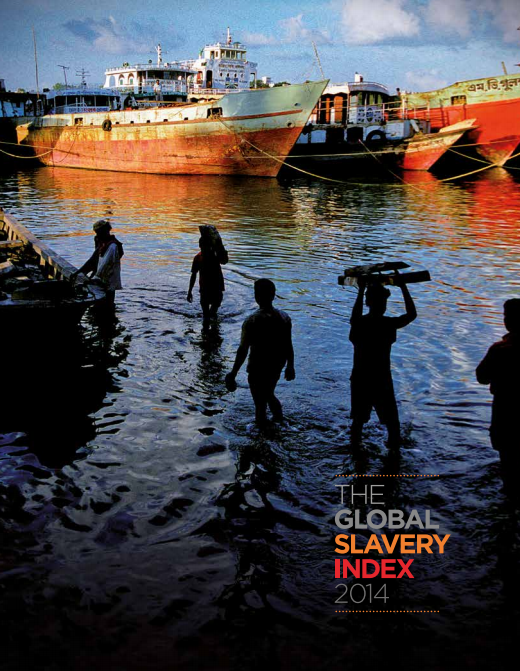By JAKE SORIANO
LONDON, United Kingdom—The Philippine government’s efforts to address modern slavery despite a lack of resources has placed it among the top three countries in Asia Pacific addressing the issue.
The 2014 Global Slavery Index (GSI) named the Philippines the No. 3 country in fighting modern slavery, after Australia and New Zealand.
The GSI has been dubbed the most accurate and comprehensive measure of modern slavery, which includes trafficking in persons and forced labor.

Released this week by the global human rights organization Walk Free Foundation, the report also noted that the Philippines is “taking strong efforts to respond to modern slavery with limited resources,” along with Georgia, Macedonia and Jamaica.
A total of 167 countries are covered by the GSI.
Governments were assessed in their response to modern slavery based on five key benchmarks: support to survivors; criminal justice system; coordination and accountability mechanisms; attitudes, social systems and institutions that enable modern slavery are addressed; and public procurement processes by businesses and governments to stop sourcing of goods and services that use modern slavery.
From a highest possible ranking of AAA to the lowest D, the Philippines got a BB, which means that, among others, it is has introduced victim support services, has a justice framework that criminalizes forms of modern slavery, and has a body to coordinate response.
This rating is higher than the average CC response rating of governments across Asia Pacific.
State prosecutor and anti-trafficking czar Darlene Pajarito says this boosts the morale of those in the anti-trafficking sector in the country.
“We have lots of gains in terms of prevention, protection, prosecution and partnership,” she told VERA Files through SMS.
The Philippines enacted its anti-trafficking act, Republic Act No. 9208, in 2003. Republic Act No. 10364 further expanded this law in 2012.
Pajarito secured the first sex trafficking conviction in the country in 2005.
Still, the Philippines continues to face problems with regard to modern slavery.
Around a quarter of a million Filipinos, or an estimated 0.266 percent of the population, live in conditions of modern slavery, according to the GSI.
The Philippines ranks 18th among 27 Asia Pacific countries covered by the index in terms of prevalence of modern slavery, and 103rd globally.
Filipino women, according the report, have been subject to sexual exploitation and modern slavery when they migrate for employment in domestic or cares work.
An estimated 35.8 million people are enslaved across the world, based on GSI, with the Asia Pacific region contributing almost two-thirds of the total number.
A prevalence of modern slavery is highest in the countries Mauritania, Uzbekistan, Haiti, Qatar, India, Pakistan, Democratic Republic of the Congo, Sudan, Syria and Central African Republic.
In absolute terms, the countries with the highest number of people in modern slavery are India, China, Pakistan, Uzbekistan, Russia, Nigeria, Democratic Republic of the Congo, Indonesia, Bangladesh and Thailand.
“There is an assumption that slavery is an issue from a bygone era. Or that it only exists in countries ravaged by war and poverty. These findings show that modern slavery exists in every country,” Walk Free Foundation chair and founder Andrew Forrest noted in a statement.
“The first step in eradicating slavery is to measure it. And with that critical information, we must all come together— governments, businesses and civil society—to finally bring an end to the most severe form of exploitation,” he added.
